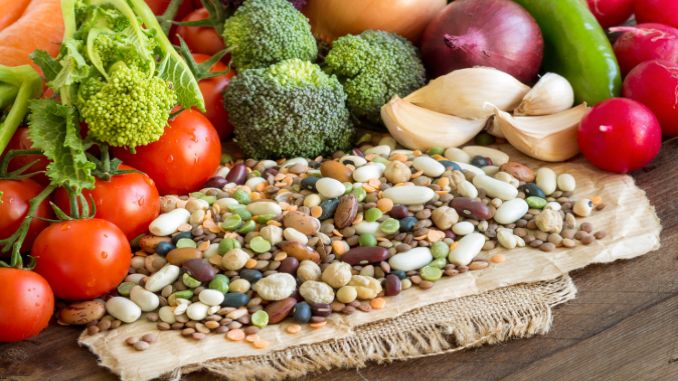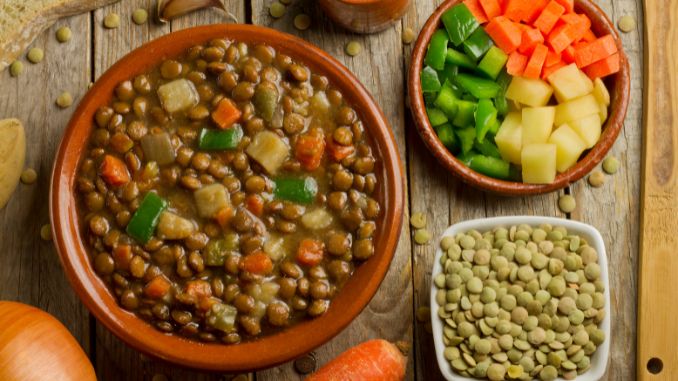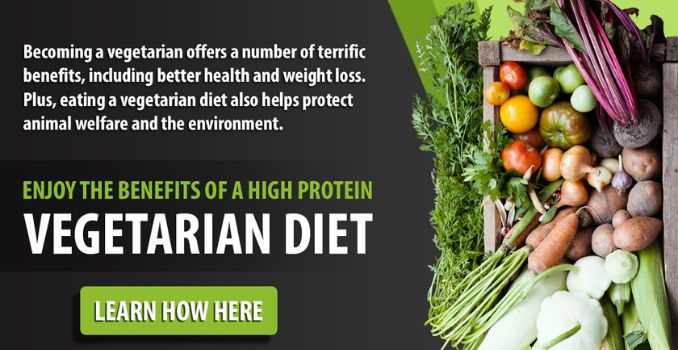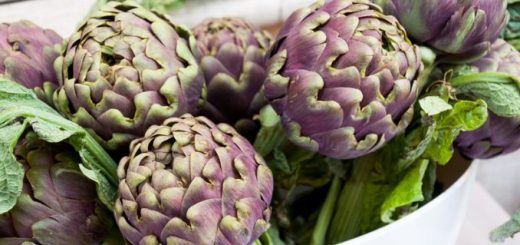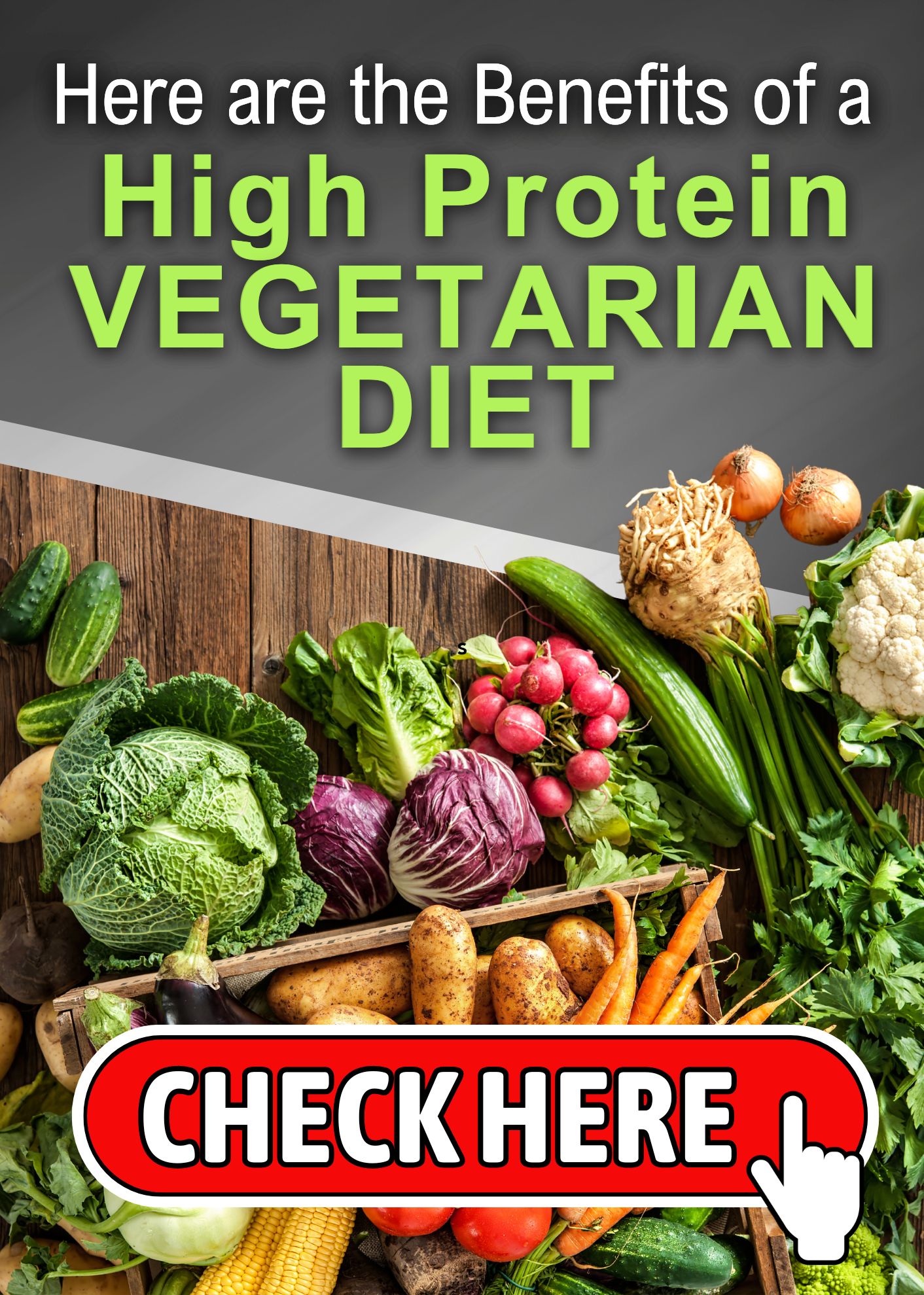Decoding the Souping Diet: Pros, Cons, and Weight Loss Claim

Last updated on April 11th, 2025 at 06:50 pm
For over ten years, the souping diet has been a topic of discussion, raising questions about how effective it is and what kind of impact it might have on health. In this article, we will take a closer look at the souping diet, highlighting its potential benefits and investigating if it's a safe way to lose weight. We'll break down the key aspects of the diet, tackle some of the common questions people have about it, and provide a clear perspective on whether it's a reliable method for weight loss and maintaining good health.
What is the Soup Diet?
The souping diet is a structured nutritional approach that emphasizes consuming a variety of soups as the main source of sustenance rather than traditional solid meals. This diet hinges on the premise that soups, particularly those loaded with vegetables and lean proteins, are nutrient-dense yet low in calories, making them an excellent choice for individuals aiming to lose weight or cleanse their bodies.
By relying on soups, which can be tailored to include a wide range of ingredients, individuals can ensure they receive a comprehensive array of vitamins, minerals, and other essential nutrients. The liquid form of the meals is believed to facilitate easier digestion and provide a sense of fullness, which can help curb overeating.
The souping diet offers a practical and enjoyable way to consume healthful ingredients. Soups can be varied in flavor, texture, and temperature, providing a satisfying and nourishing eating experience while pursuing weight loss and body detoxification goals.
What are the Claims of the Souping Diet?
1. Weight Loss
While the souping diet can offer initial weight loss benefits due to its focus on low-calorie, nutrient-rich soups, it's important to emphasize that health professionals do not widely recommend this diet as a standalone long-term weight loss solution. The primary concern is that relying solely on soups can pose nutritional risks, potentially leading to imbalances and deficiencies over time. Despite being nutrient-dense, Soups might not provide all essential nutrients in the right proportions, particularly if the diet lacks variety or leans heavily on certain types of soups.
Additionally, the souping diet's emphasis on liquid meals might not suit everyone's digestive system or energy needs, especially for individuals with specific health conditions or those leading active lifestyles. The risk of feeling unsatisfied or deprived due to the absence of solid foods can also lead to overeating once the diet is concluded, potentially causing weight regain.
Health experts generally advocate for balanced diets that include a variety of food groups, ensuring comprehensive nutrition. A sustainable method of losing weight is best achieved through a nutritious diet with healthy foods and regular physical activity tailored to an individual's unique health requirements.
2. Detoxification
The detoxification claim of the souping diet, which posits that soup-centric eating can cleanse the body of toxins, lacks strong scientific backing. The body naturally detoxifies itself, particularly through the liver and kidneys, without requiring a specialized diet. While soups can be nutrient-rich, providing a bounty of vitamins, minerals, and antioxidants, they don't significantly boost the body's inherent detox mechanisms.
The concept of needing a diet for detoxification oversimplifies the body's complex detox processes. A balanced diet, consistent exercise, adequate hydration, and avoiding harmful substances are more effective strategies for genuine health improvement and detoxification support. Individuals considering the souping diet for detox purposes should seek advice from healthcare professionals and focus on long-term, sustainable lifestyle changes instead of quick fixes.
3. Nutrient Intake
A healthy souping diet emphasizes nutrient intake by utilizing a diversity of soups made from a range of healthy ingredients. These include a variety of vegetables, lean proteins, and beneficial fats, all contributing to a diet rich in essential nutrients. Vegetables offer a plenitude of vitamins and minerals, lean proteins support muscle maintenance and growth, and healthy fats are vital for cognitive and cellular health.
Additionally, these ingredients provide antioxidants, which help combat oxidative stress and enhance the body's defenses against illnesses. The diet's focus on nutrient-dense soups ensures a comprehensive nutrient intake, supporting overall health and wellness. It positions the souping diet as a means to facilitate weight loss and provide a nourishing and balanced dietary approach.
4. Improved Digestion
Another key claim of the souping diet is its potential to enhance digestive health. Proponents suggest that the diet's focus on liquid meals can simplify the digestive process since liquids are easier for the body to break down compared to solid foods.
This ease of digestion is thought to give the gastrointestinal system a break, which might be beneficial for individuals experiencing digestive discomforts such as bloating and indigestion.
The theory is that by temporarily switching to soups, the digestive tract is less taxed, allowing for a period of rest and recovery. Additionally, the high liquid content of soups can help maintain hydration, which is crucial for healthy digestion. This aspect of the souping diet is presented as a way to gently support and improve the digestive process, offering a respite that could lead to reduced gastrointestinal symptoms.
Proven Pros of Souping Diet
1. Increased Vegetable Intake and Souping Diet
Research indicates that diets rich in vegetables, like those promoted in the souping diet, offer numerous health benefits. A study connects high vegetable intake with reduced risks of chronic issues, such as heart disease and certain cancers, underscoring vegetables' role in health, particularly when consumed as part of soup diets.
2. Hydration, Fullness, and Weight Loss
Soups' liquid nature, integral to soup diets, aids hydration and fullness. A European Journal of Clinical Nutrition study showed that eating soup can help you feel fuller (satiety) and stay hydrated (fluid intake) compared to just eating solid foods. This can help you lose weight, as feeling fuller may reduce overall calorie intake.
3. Nutrient Density in Soup Recipes
A healthy soup, especially when prepared with a variety of nutrient-rich ingredients like lean meats, olive oil, and diced tomatoes, is highlighted in the Journal of Food Science and Technology for its essential nutrient contributions, aligning with the principles of a balanced diet.
4. Fiber Boost from Souping Diet
Incorporating vegetables and legumes into soups, a common practice in soup-based diets, increases fiber intake and is beneficial for digestion and overall health. This can be particularly effective in diets like the cabbage soup diet, where cabbage's high fiber content plays a key role.
Proven Cons of Souping Diet
1. Nutrient Deficiencies and Imbalances
The souping diet's typical exclusion of entire food groups can lead to significant nutrient deficiencies. For example, restricting fruits and grains limits the intake of essential vitamins and minerals. It also reduces dietary fiber, which is critical for digestive health. This lack of variety can disrupt nutritional balance, potentially causing long-term health issues.
2. Lack of Satiety and Sustainability
While soups can be part of a satiating meal, relying exclusively on them might not fulfill the body's need for varied textures and nutrients found in whole foods, potentially leading to feelings of dissatisfaction and hunger despite consuming adequate calories.
3. Limited Food Choices
The restrictive nature of soup diets, which confine food choices to a narrow range, can diminish nutritional intake and lead to dietary boredom, making it challenging to stick with the diet over time.
4. Lack of Scientific Backing
Many soup diets fall into fad diets, often promoted for quick weight loss results without solid scientific evidence to support their efficacy or safety.
5. Questionable Weight Loss Claims
Although some research indicates that soups, particularly those rich in vegetables, can contribute to weight loss, the overall impact of a soup-only diet on long-term weight management is still debatable.
Tips for Healthy Soup Intake
Incorporating the souping diet into your lifestyle can be a strategic approach to achieving healthy weight loss. Here are some tailored tips that align with your specified terms:
1. Healthy Weight Loss with the Souping Diet
The souping diet can be an effective strategy for losing weight in addition to exercise. It focuses on consuming fewer calories while still providing essential nutrients. Opt for soups rich in lean proteins and vegetables to support your weight loss journey.
2. Incorporate Healthy Fats
Use ingredients like olive oil to prepare your soups. Healthy fats are crucial for nutrient absorption and can improve the flavor of your soup, making your souping diet more enjoyable and satisfying.
3. Soup Recipes for a Balanced Diet
Eat soup recipes that align with a balanced diet. Include a mix of fats, carbohydrates, and proteins to ensure your meals are nutritious and support overall health, not just weight loss.
4. Control Your Soup Intake
While soups can be a great addition to your diet, it is important to control your soup intake. Choosing to eat soup daily can be beneficial, but ensure your diet is varied to prevent nutrient deficiencies.
5. Monitor Sodium for High Blood Pressure
If you have high blood pressure, pay close attention to the sodium content in your soups. Opt for low-sodium broths and avoid adding extra salt to keep your souping diet heart-healthy.
Tailored Soup Recipes
A. Low-Calorie Cabbage Soup Recipe
This cabbage soup is a light, flavorful dish loaded with fresh vegetables and perfectly seasoned. It's ideal for anyone looking to reduce their calorie consumption while still enjoying a satisfying meal. The soup is packed with fiber, vitamins, and minerals. This makes it a healthy choice for any time of the day.
Ingredients:
-
- 1 tablespoon olive oil
- 1 medium onion, chopped
- 2 cloves of garlic, minced
- 1/2 head of cabbage, sliced into bite-sized pieces
- 2 carrots, peeled and sliced
- 2 stalks of celery, chopped
- 1 bell pepper, any color, chopped
- 4 cups of low-sodium vegetable broth
- 1 (14.5 oz) can of diced tomatoes
- 1 teaspoon thyme
- 1 teaspoon basil
- Salt and pepper to taste
- 2 bay leaves (optional)
Instructions:
-
- Sauté the Aromatics: In a large pot, heat the olive oil over medium heat. Add the onion and garlic, sautéing until they become translucent and fragrant, about 3-5 minutes.
- Add the Vegetables: Incorporate the carrots, celery, bell pepper, and cabbage into the pot. Stir and cook for about 5-7 minutes, until the vegetables start to soften slightly.
- Pour in the Liquids: Add the vegetable broth and diced tomatoes with their juice. Sprinkle in the thyme, basil, salt, and pepper. If you're using bay leaves, add them now.
- Simmer the Soup: Boil the soup. Bring it to low and let it simmer, covered, for about 20-30 minutes. The vegetables should be tender to make the flavor well blended.
- Final Adjustments: Once the vegetables are cooked to your liking, remove the bay leaves (if used). Adjust the seasoning if needed.
- Serve: Ladle the soup into bowls and eat cabbage soup while steaming hot. Optional, garnish it with fresh herbs like chives or parsley for an extra touch of flavor.
B. High-Fiber Lentil and Vegetable Soup Recipe
This lentil and vegetable soup is a fiber powerhouse, thanks to the lentils and a variety of vegetables. It's a perfect choice for anyone looking to increase their fiber intake. Lentils are a great source of protein, making this soup an excellent meal option that's both filling and beneficial for digestive health.
Ingredients:
- 1 tablespoon olive oil
- 1 large onion, diced
- 2 garlic cloves, minced
- 2 carrots, diced
- 2 celery stalks, diced
- 1 cup chopped bell peppers (any color)
- 1 cup diced tomatoes (fresh or canned)
- 1 cup dried lentils (green, brown, or red), rinsed and drained
- 6 cups low-sodium vegetable broth (chicken broth will do)
- 2 teaspoons ground cumin
- 1 teaspoon paprika
- Salt and pepper to taste
- 2 cups chopped kale or spinach
- Fresh lemon juice (optional)
Instructions:
- Sauté the Base Ingredients: Heat the olive oil in a large pot over medium heat. Add the onion, garlic, and sauté until the onion is translucent, about 5 minutes.
- Add the Vegetables: Stir in the carrots, celery, and bell peppers. Cook for another 5 minutes, until the vegetables start to soften.
- Incorporate Lentils and Spices: Add the lentils, diced tomatoes, cumin, and paprika to the pot. Mix well to combine all the ingredients.
- Pour in the Broth: Add your choice of broth and season with salt and pepper. Bring the soup to a boil. Reduce the heat and let it simmer. Covered for about 25-30 minutes or until the lentils are tender.
- Add Leafy Greens: Once the lentils are cooked, add the kale or spinach. Cook for an additional 5 minutes or until the greens are wilted and tender.
- Final Touches: Adjust the seasoning with more salt, pepper, or spices if needed. Optional, squeeze a fresh lemon juice to enhance the flavors.
- Serve: Scoop the soup into bowls and enjoy hot. Optional, garnish with fresh herbs, a dollop of yogurt, or a sprinkle of chili flakes for an extra kick.
C. Ginger Turmeric Carrot Detox Soup
This Ginger Turmeric Carrot Soup is a creamy, flavorful soup that aids in detoxification and boosts overall health. The ginger and turmeric provide a warm, spicy kick, while the carrots add a natural sweetness and a wealth of nutrients. This soup is not only delicious but also supports digestion and inflammation reduction.
Ingredients:
- 1 tablespoon coconut oil
- 1 onion, chopped
- 2 cloves of garlic, minced
- 2 tablespoons fresh ginger, grated
- 1 tablespoon fresh turmeric, grated (or 1 teaspoon dried turmeric)
- 1 pound carrots, peeled and sliced
- 4 cups vegetable broth
- Salt and pepper to taste
- 1 can (14 oz) coconut milk
- Fresh cilantro or parsley for garnish
- Lemon or lime wedges for serving
Instructions:
- Cook Aromatics: Heat the coconut oil over medium heat in a large pot. Add the onion and garlic, sautéing until the onion is translucent, about 5 minutes. Stir in the turmeric and ginger. Cook for another minute until fragrant.
- Add Carrots: Incorporate the sliced carrots into the pot, stirring to combine them with the aromatics.
- Simmer: Pour in the vegetable broth and season with salt and pepper. Bring the mixture to a boil. Turn to low heat and let it simmer (keep this covered until the carrots are tender, about 20 minutes).
- Blend the Soup: Puree the soup straight in the pot using an immersion blender once the carrots are soft. Alternatively, transfer the soup to a blender to puree in batches.
- Stir in Coconut Milk: After blending the soup to your desired consistency, stir in the coconut milk and heat the soup gently. Avoid boiling to maintain the coconut milk's creamy texture.
- Season and Serve: Adjust the seasoning as needed and taste the soup. Ladle the soup into bowls. Garnish with cilantro or parsley, and serve with a wedge of lemon or lime on the side.
Conclusion
The souping diet offers a unique approach to incorporating more vegetables and nutrient-dense foods into one's diet, potentially aiding in short-term weight loss and hydration. However, it's crucial to recognize its limitations, particularly concerning long-term nutritional balance and the lack of evidence supporting its detoxification claims. As with any dietary plan, moderation and variety are key.
Individuals should aim to integrate soups as part of a balanced diet, ensuring they receive various nutrients from various sources to support overall health and well-being. Consulting healthcare professionals and tailoring dietary choices to individual needs and lifestyles will always yield the best results for health and weight management.
Rick Kaselj MS, is a leading kinesiologist and injury specialist as well as co-creator of the best-selling Unlock Your Hip Flexors program. Rick creates exercise programs that help people heal injuries and eliminate pain, so they can go back to living a full, active, healthy life.







